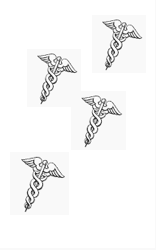By KIM BELLARD

I learned a new word this week: “chemputer.” It’s not a new word – it’s been around since at least 2012 — but chances are, unless you are a chemist or maybe a synthetic biologist, it’s not a word you knew it either. Even if you don’t care about chemistry, biology, or, for that matter, etymology, this is something you might want to pay attention to, because it may end up revolutionizing healthcare.
The term is credited to Professor Lee Cronin of the University of Glascow. Back in 2012, when he was first discussing the concept, he told The Guardian: “Basically, what Apple did for music, I’d like to do for the discovery and distribution of prescription drugs.”
Fast-forward most of a decade and a pandemic, and Dr. Cronin and others are closing in on that goal — although they’ve updated their analogy to “Spotify for chemistry.”
I won’t pretend to understand either the chemistry nor the programming involved, but, simply put, chemputers automate the production of molecules – including prescription drugs, such as, for example, COVID-fighting Remdesivir. CNBC recently profiled activity in the field, spurred by some new papers from Dr. Cronin and Dr. Nathan Collings of SRI Biosciences.
Continue reading…












